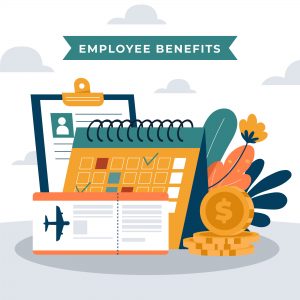Leave entitlements for employees in Australia are governed by various laws and regulations to ensure fair and equitable treatment. Among these entitlements, annual leave is a crucial aspect that allows employees to take a break from work, recharge, and spend quality time with family and friends.
Annual Leave Entitlements
In Australia, annual leave entitlements are primarily outlined in the Fair Work Act 2009 (Cth) (Act). According to the Act, full-time employees are entitled to four weeks of paid annual leave per year, with part-time and casual employees receiving a pro-rata amount based on their hours worked. Annual leave accrues progressively during the year based on the number of ordinary hours the employees work subject to circumstances permitting annual leave accumulation, and employees can take it for various reasons, including holidays, rest, and personal reasons. An employee can take annual leave as soon as it is accumulated and as much or as little as he/she wishes.
Annual Leave Direction
While employers generally have the right to manage their workforce and allocate annual leave, they cannot force employees to take leave without their agreement (for example, as per the employment agreement entered into by the parties). According to the Act, the timing of annual leave must be agreed upon between the employer and the employee. The Act also specifies that the employer must not unreasonably refuse a request for annual leave.
For example, in connection to the Christmas holidays, employers may encourage employees to take leave during this period due to reduced business activities or the desire for a collective break. However, it is crucial for employers to approach this matter with transparency and respect for their employees’ preferences.
If the employee is not covered by an award or enterprise agreement, the employer may reasonably direct the employee to take his/her annual leave during the Christmas holidays. If the employee is covered by an award or enterprise agreement, the employer may only reasonably direct the employee to take annual leave following the award or enterprise agreement.
Reasonable direction may include, for example, the employee has an excessive annual leave accumulation or a temporary business closing during the Christmas holiday. In addition, various factors (such as business needs, agreed arrangement, industrial practice, timing of direction or length of notice) must be considered to determine the reasonableness of the direction.
Employers should communicate their expectations regarding annual leave during the Christmas holidays well in advance, allowing employees to plan accordingly. This communication should be open and considerate, recognising that employees may have varying preferences and personal obligations during the festive season.
Handling Disputes and Legal Considerations
The employer-employee relationship is built on mutual respect and adherence to employment laws, and any deviation from these norms may lead to legal consequences.
If an employer attempts to force employees to take annual leave against their wishes or without proper agreement, it may lead to disputes and potential legal consequences. Employees have the right to challenge any unreasonable refusal of leave or attempts to impose mandatory leave. Employers should be aware that breaching leave entitlements can result in penalties and damage their reputation.
The IP House Lawyers have assisted many clients in Fair Work Commission (FWC) proceedings regarding employment matters.
For any further information or queries on the above content, please contact us.
The Author
Jean Kallmyr | Lawyer, The IP House Lawyers | t: 0435 799 831 | e: admin@theiphouse.com.au
Key Contact
Claire Darby | Managing Director/Lawyer, The IP House Lawyers | t: 0412 998 951 | e: claire@theiphouse.com.au
Disclaimer
The information and contents of this publication do not constitute any legal or financial advice. This publication is intended only for reference purposes for The IP House Lawyers’ clients and prospective clients.
Image by Freepik

